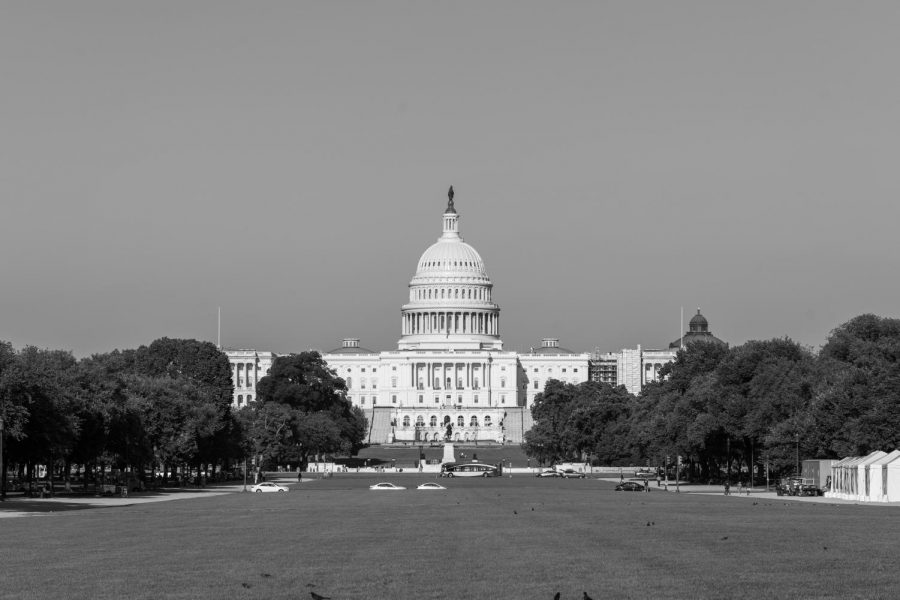$2.2 Trillion Aid passes 96-0 in Senate, awaits approval in the House of Representatives
U.S. Capitol in Monochrome
March 26, 2020
An immediate relief aid package of $2.2 trillion was passed late Wednesday in the Senate and the Labor Department reported more than 3 million people filed for unemployment in the United States last week.
The Senate passes the largest aid package recorded in history to the House of Representatives as more than 3 million people have filed for unemployment in the United States, a record high in American history.
According to the Washington Post, last week saw the biggest jump in new jobless claims in history, surpassing the record of 695,000 set in 1962.
Economists say 40 million Americans could lose their jobs by April.
“The most terrifying part about this is this is likely just the beginning of the layoffs,” The Washington Post reported Martha Gimbel, a labor economist at Schmidt Futures, said.
In several states, overburdened websites were crashing as laid-off workers applied for unemployment en masse. Some waiting for hours on the phone to talk to customer service representatives for help.
But with the optimism of Wall Street investors towards the aid package that Congress passed, the Dow Jones Industrial average regained 2,500 points after falling 10,000 points in the last two months.
According to NPR, the CARES ACT provides relief to several groups impacted by the coronavirus pandemic.
The emergency relief bill passed the Senate 96 to zero. It includes disbursement of $1,200 to Americans who earn less than $75,000 and diminish or phase out for anybody earning more. Disqualification would be for Americans earning more than $99,000. For every child under the age of 17, $500 will be given to their parents or legal guardians.
A $500 billion lending program for businesses, cities and states are included as well as establishing a $367 billion employee retention fund for small businesses. Hospitals will receive $130 billion and includes providing four months expanded unemployment insurance.
“The gears of the American economy have ground to a halt,” said Senate Minority Leader Charles E. Schumer (D-N.Y.). “Our country has faced immense challenges before, but rarely so many at the same time,” The Washington Post reported.
Passenger airlines would qualify for $25 billion in loans and an additional $25 billion in grants that might not have to be repaid. A different batch of money would be given for cargo airlines and suppliers.
Another $17 billion in assistance for companies important for national security.
An additional $13 million for Harvard University, $25 million for Washington’s Kennedy Center for the Performing Arts and $75 million for the National Endowment for the Humanities were justified inclusions to help the institutions prepare for and respond to the COVID-19 outbreak.
An oversight board was created for transparency and detection on abuse of power or fraudulent behavior in the Treasury Department special inspector general for pandemic recovery.
“Every loan document will be public and made available to Congress very quickly so we can see where the money is going, what the terms are and if it’s fair to the American people,” Schumer said on the Senate floor Wednesday.
Friday the legislation will be brought to the House floor and House speaker Nancy Pelosi (D-Calif.) said she felt certain “we will have a strong bipartisan vote.”
The Washington Post reported that a voice vote would not require the House’s 430 sitting members to gather in Washington. Nancy Pelosi and House Minority Leader Kevin McCarthy (R-Calif.) said he endorsed given that many have contracted or been exposed to the coronavirus.


